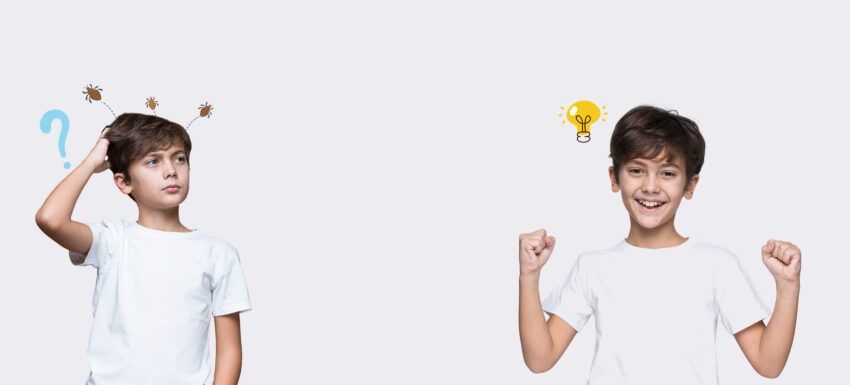
Lice are tiny, wingless insects that live on human hair and feed on blood from the scalp. These parasites are common, especially among school-age children, and can be easily spread from one person to another through close contact. This article will discuss the causes, symptoms, and treatment options for lice. Click this link to find lice treatment for kids.
Causes of lice:
Lice are highly contagious and can spread quickly from one person to another through direct contact. This can occur by sharing personal items like combs, brushes, hats, and clothing. Lice can also be transmitted through communication with infested items like bedding, towels, and furniture.
Symptoms of lice:
The most common symptom of lice is itching, caused by the lice bites on the scalp. Other symptoms may include an itchy feeling on the scalp, sores caused by scratching, and the presence of lice eggs, or nits, on the hair shafts. Nits are tiny, oval-shaped eggs attached to the hair shaft near the scalp and can be challenging to see.
Treatment options for lice:
There are several treatment options for lice, including over-the-counter medications, prescription medications, and home remedies.
Over-the-counter medications:
Several medications are effective at treating lice, including permethrin and pyrethrin. These medications work by killing the lice and their eggs. It is essential to follow the instructions on the package carefully and repeat the treatment after 7-10 days to eliminate all lice and eggs.
Prescription medications:
If over-the-counter medications are not effective, prescription medications may be necessary. These medications include malathion, benzyl alcohol, and spinosad. They work the same way as over-the-counter medications but may be more effective.
Home remedies:
Several home remedies may be effective at treating lice, including applying mayonnaise or olive oil to the scalp and hair and covering it with a shower cap overnight. This suffocates the lice and makes it easier to comb out the nits. It is important to note that home remedies have not been scientifically proven effective and may not be as effective as over-the-counter or prescription medications.
Prevention of lice:
The best way to prevent lice is to avoid direct contact with infested individuals and to avoid sharing personal items like combs, brushes, hats, and clothing. If you come into contact with someone with lice, it is essential to check your scalp and hair for lice and nits and treat any infestations immediately.